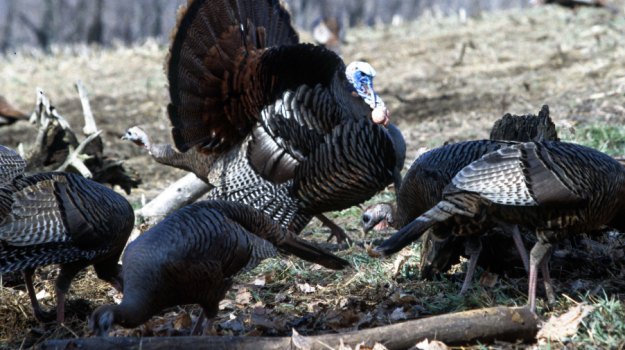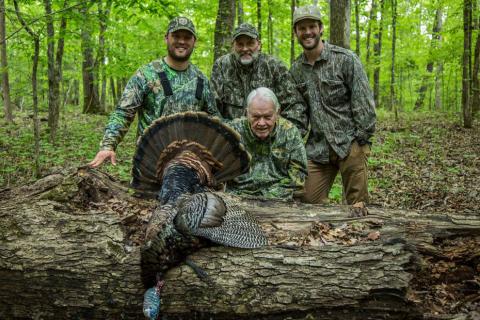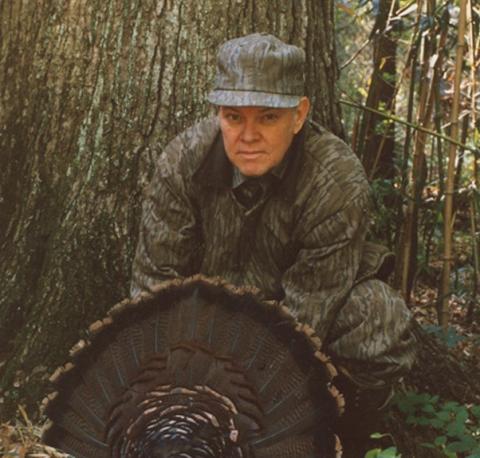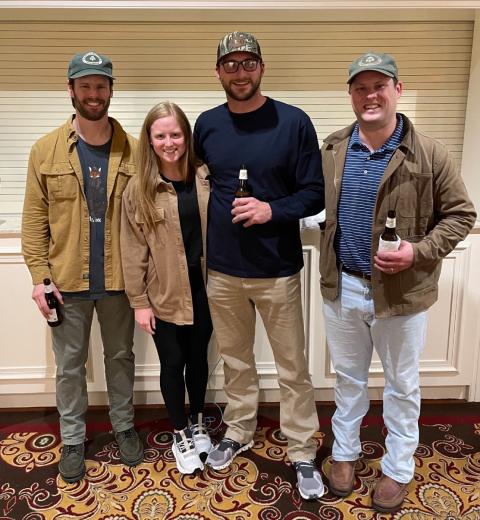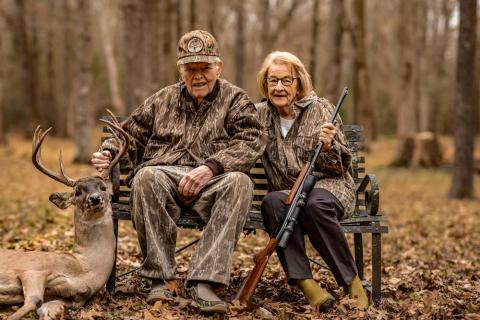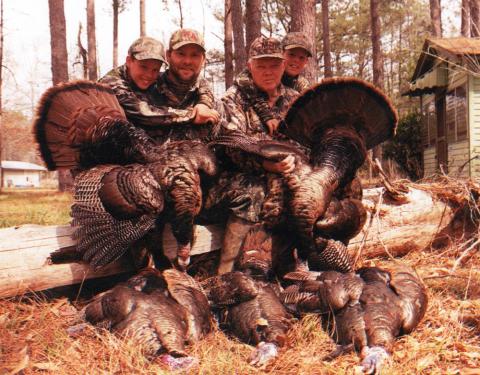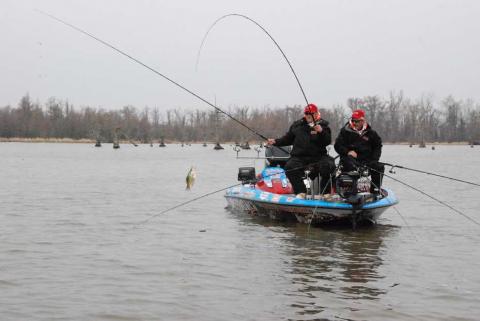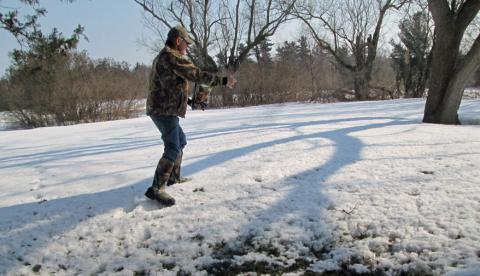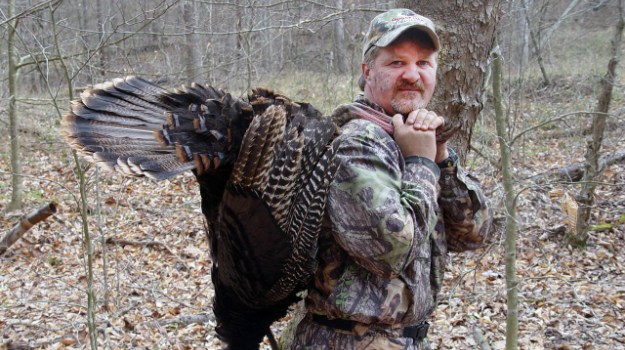
Editor’s Note: Tracy Groves, the Mossy Oak Regional ProStaff Manager for Maryland, Pennsylvania, New Jersey, Delaware and New York, is a licensed minister. He’s also the founder and president of Heartwood Outdoors, a nonprofit organization that works with children who come from single parent homes and has a 160-acre farm in Big Pool, Maryland. At the farm, Groves helps teach the children about the outdoors, including archery and hunting skills and moral values.
Here’s another very important secret about hunting a turkey that shuts up and doesn’t come to you. Always try to have more turkeys located than the one turkey you start off trying to take. When my first turkey in the morning gobbles good, starts coming to me and shuts up, then I wait an hour after he shuts up and go to the place where I’ve last heard him gobble. I’ll call a few times. If the turkey doesn’t gobble back to my calling, I want to know that I have two more places where there's a turkey I can hunt. For instance in Maryland, if I can find three turkeys to hunt, I feel really blessed. If I'm hunting in Pennsylvania, I may have as many as five or six turkeys I can hunt from one location. When I go to Oklahoma to hunt, and the sun starts to come up, the woods and the fields will sound like there's a turkey on every tree limb. So, the number of turkeys you have to hunt before you start hunting really depends on the state and the time of spring you're hunting. I always like to have more than one turkey that I can hunt on every hunt I undertake.
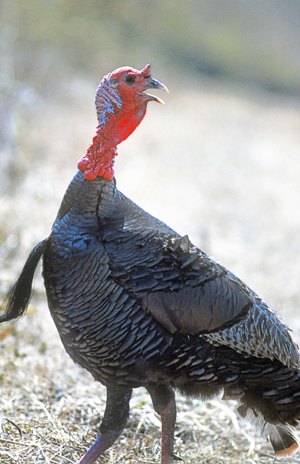 One of the things I do as a guide is I like to get to the place I’ll be guiding a day or two before my hunter arrives. By doing this, I can locate the turkeys and make sure we have more than one bird to hunt each day. Everyone will get lucky once in awhile. But as a guide, I'm supposed to be able to take a hunter to a gobbling turkey. When that turkey shuts up and doesn’t come in, I need to have another turkey I can help that hunter hunt. A really good turkey hunter will scout the land he’s turkey hunting often before the season to know where the turkeys are roosting, getting water, feeding and strutting.
One of the things I do as a guide is I like to get to the place I’ll be guiding a day or two before my hunter arrives. By doing this, I can locate the turkeys and make sure we have more than one bird to hunt each day. Everyone will get lucky once in awhile. But as a guide, I'm supposed to be able to take a hunter to a gobbling turkey. When that turkey shuts up and doesn’t come in, I need to have another turkey I can help that hunter hunt. A really good turkey hunter will scout the land he’s turkey hunting often before the season to know where the turkeys are roosting, getting water, feeding and strutting.
If you have turkey hunting friends who consistently takes turkeys every season, and you always want to know why they’re taking gobblers, and you're not, then figure they're probably putting in more time scouting and locating turkeys than they are actually hunting turkeys. One of the secrets of turkey hunting is woodsmanship – knowing:
- where the turkey wants to go and getting to the spot before he does;
- what the turkey wants to do - feeding, watering, breeding or displaying - when he arrives at that location;
- how and where to set-up (take a stand) to be in the best place for your hunter to get a shot;
- how to move quietly and undetected when scouting for turkeys;
- how to read the terrain of the area you're hunting; and
- where a turkey should be, where he should walk, where he should feed, and where he should meet his hen.
All of these aspects of where and when to hunt a turkey are far more important than your ability to call turkeys. But you still have to know the vocalizations of the turkey and understand the sounds and what they mean.
A good woodsman also has to be a sportsman and not a killer. A killer is someone who will go into a state that has legalized baiting for turkeys, broadcast some corn, sit there, wait for the turkey to walk in and then shoot him. A woodsman will walk into the woods, educate himself about a particular gobbler and make a wise decision, after he’s learned as much as he can about that bird. He’ll go into the woods and harvest that bird. For me, that’s what turkey hunting is all about.
Day 4: What to Do after You’ve Waited an Hour and the Gobbler Doesn’t Show Up
















